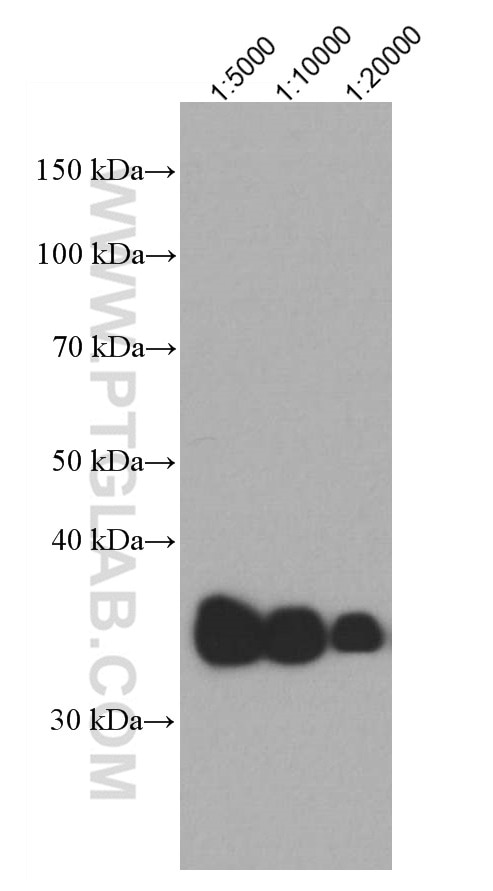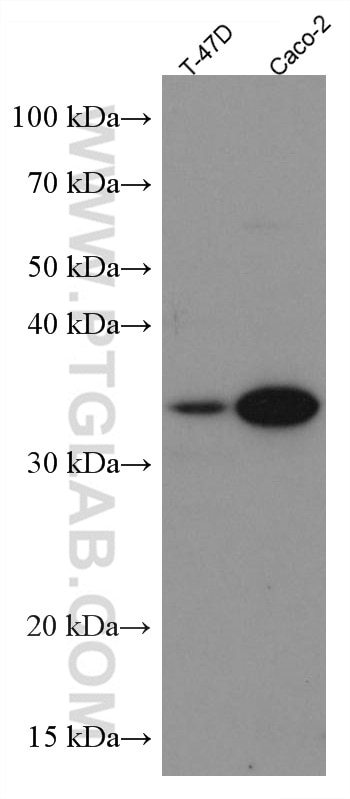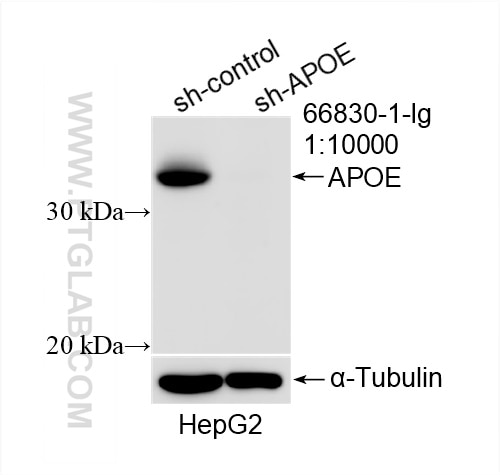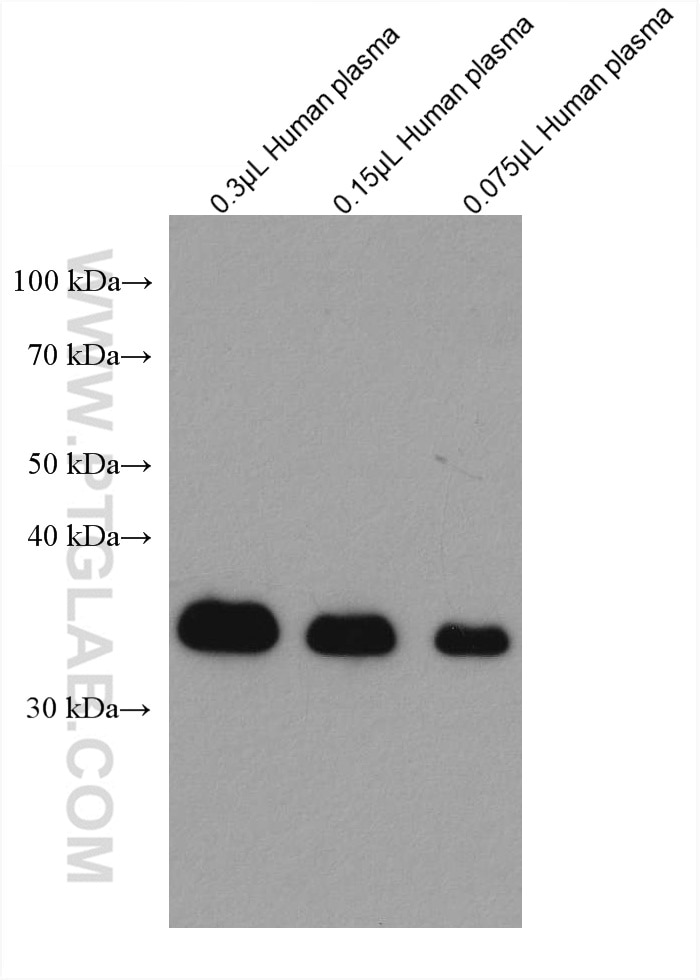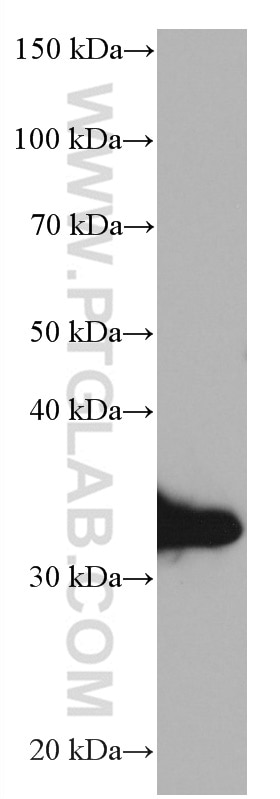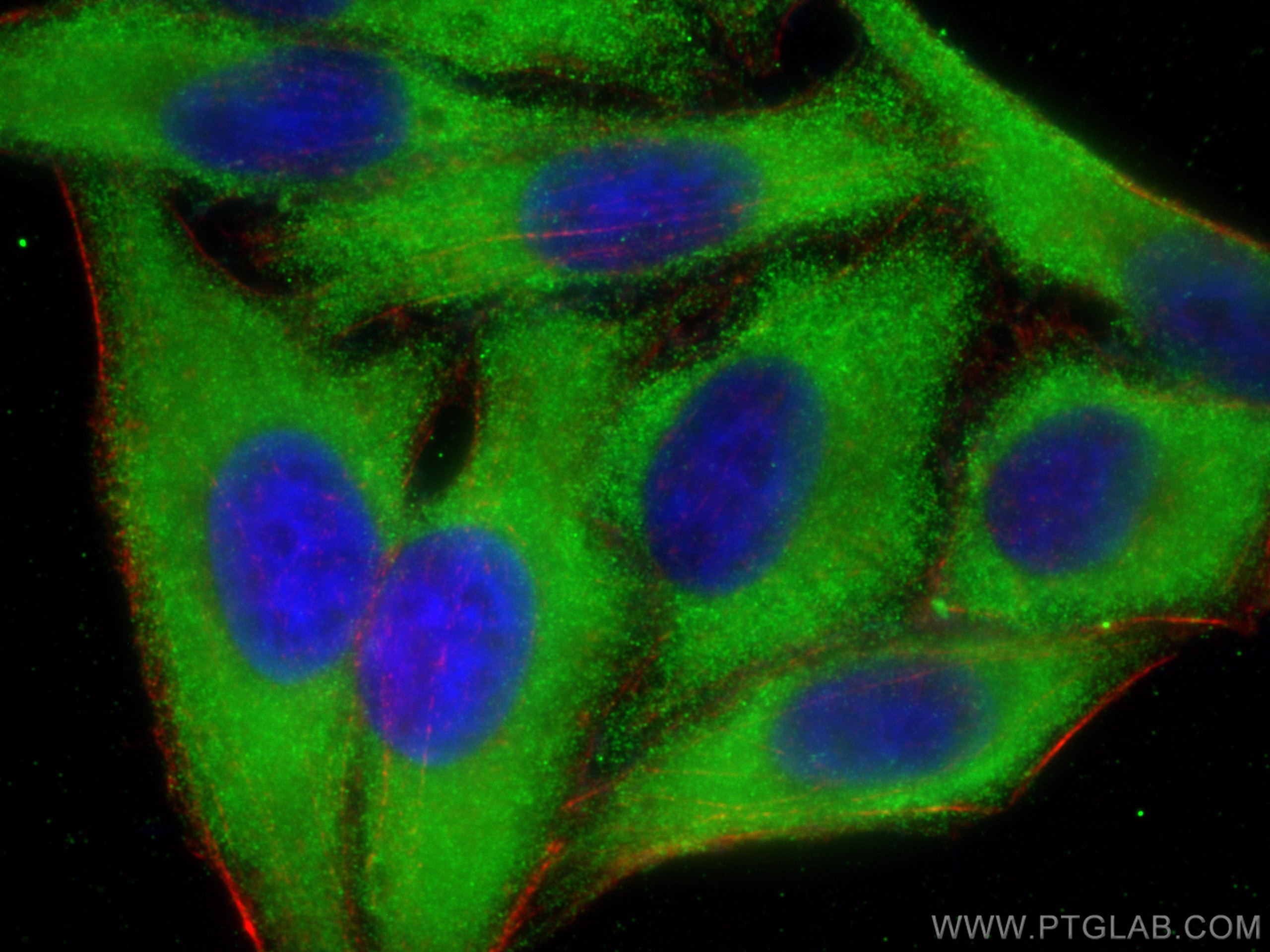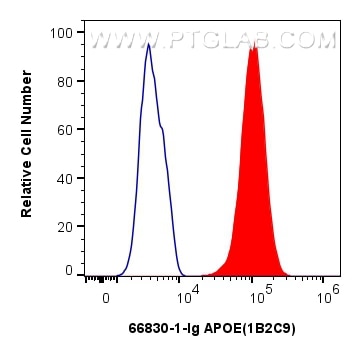- Phare
- Validé par KD/KO
Anticorps Monoclonal anti-APOE
APOE Monoclonal Antibody for WB, IF/ICC, FC (Intra), ELISA
Hôte / Isotype
Mouse / IgG1
Réactivité testée
Humain et plus (1)
Applications
WB, IHC, IF/ICC, FC (Intra), ELISA
Conjugaison
Non conjugué
CloneNo.
1B2C9
N° de cat : 66830-1-Ig
Synonymes
Galerie de données de validation
Applications testées
| Résultats positifs en WB | tissu plasmatique humain, cellules Caco-2, cellules HepG2, cellules T-47D, plasma humain, sang humain, Sanguin humain |
| Résultats positifs en IF/ICC | cellules HepG2, |
| Résultats positifs en FC (Intra) | cellules HepG2, |
Dilution recommandée
| Application | Dilution |
|---|---|
| Western Blot (WB) | WB : 1:3000-1:20000 |
| Immunofluorescence (IF)/ICC | IF/ICC : 1:400-1:1600 |
| Flow Cytometry (FC) (INTRA) | FC (INTRA) : 0.80 ug per 10^6 cells in a 100 µl suspension |
| It is recommended that this reagent should be titrated in each testing system to obtain optimal results. | |
| Sample-dependent, check data in validation data gallery | |
Applications publiées
| WB | See 10 publications below |
| IHC | See 2 publications below |
| IF | See 6 publications below |
Informations sur le produit
66830-1-Ig cible APOE dans les applications de WB, IHC, IF/ICC, FC (Intra), ELISA et montre une réactivité avec des échantillons Humain
| Réactivité | Humain |
| Réactivité citée | Humain, souris |
| Hôte / Isotype | Mouse / IgG1 |
| Clonalité | Monoclonal |
| Type | Anticorps |
| Immunogène | APOE Protéine recombinante Ag28186 |
| Nom complet | Apolipoprotein E |
| Masse moléculaire calculée | 36 kDa |
| Poids moléculaire observé | 34-36 kDa |
| Numéro d’acquisition GenBank | BC003557 |
| Symbole du gène | APOE |
| Identification du gène (NCBI) | 348 |
| Conjugaison | Non conjugué |
| Forme | Liquide |
| Méthode de purification | Purification par protéine G |
| Tampon de stockage | PBS with 0.02% sodium azide and 50% glycerol |
| Conditions de stockage | Stocker à -20°C. Stable pendant un an après l'expédition. L'aliquotage n'est pas nécessaire pour le stockage à -20oC Les 20ul contiennent 0,1% de BSA. |
Informations générales
The apolipoprotein E (APOE) is a 299-amino acid polypeptide that mediates the binding, internalization, and catabolism of lipoprotein particles, and also serve as a ligand for the LDL (APO B/E) receptor and for the specific APOE receptor (chylomicron remnant) of hepatic tissues. The very strong association of the APOE ɛ4 allele with AD risk and its role in the accumulation of amyloid β in brains of people and animal models solidify the biological relevance of APOE isoforms but do not provide mechanistic insight.
Protocole
| Product Specific Protocols | |
|---|---|
| WB protocol for APOE antibody 66830-1-Ig | Download protocol |
| IF protocol for APOE antibody 66830-1-Ig | Download protocol |
| Standard Protocols | |
|---|---|
| Click here to view our Standard Protocols |
Publications
| Species | Application | Title |
|---|---|---|
Nat Aging Single-cell and spatial RNA sequencing identify divergent microenvironments and progression signatures in early- versus late-onset prostate cancer | ||
Brain Behav Immun Egln3 expression in microglia enhances the neuroinflammatory responses in Alzheimer's disease | ||
EMBO J Rab2A-mediated Golgi-lipid droplet interactions support very-low-density lipoprotein secretion in hepatocytes | ||
J Biol Chem Lack of ApoE inhibits ADan amyloidosis in a mouse model of Familial Danish Dementia | ||
Front Immunol Binding of Macrophage Receptor MARCO, LDL, and LDLR to Disease-Associated Crystalline Structures. |
Avis
The reviews below have been submitted by verified Proteintech customers who received an incentive for providing their feedback.
FH Silvia (Verified Customer) (12-03-2019) | Specific antibody for IF and WB on Human tissues
|
